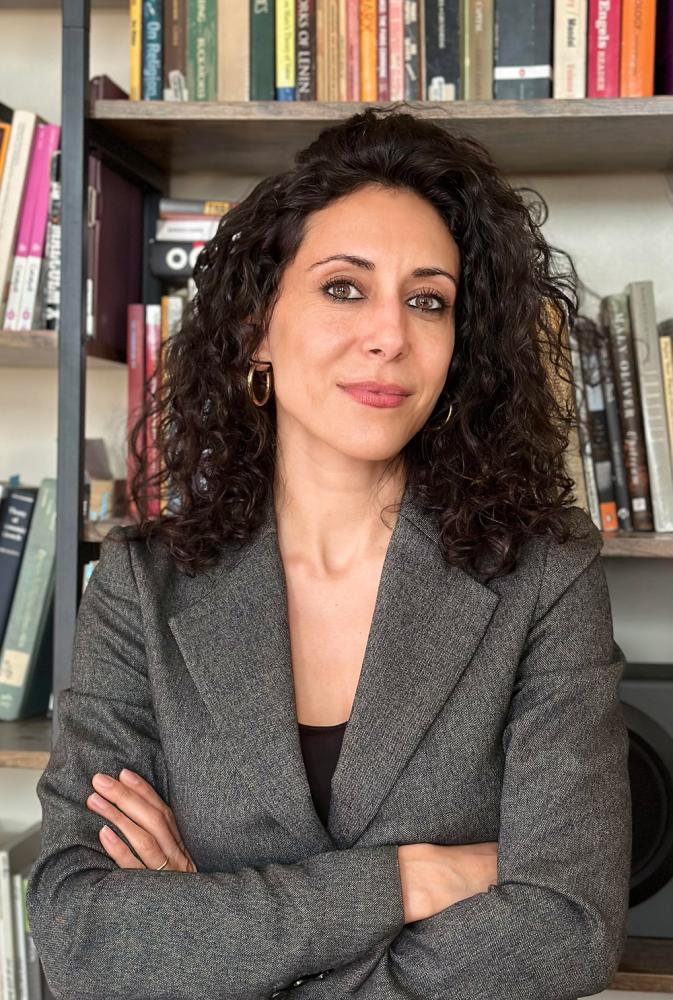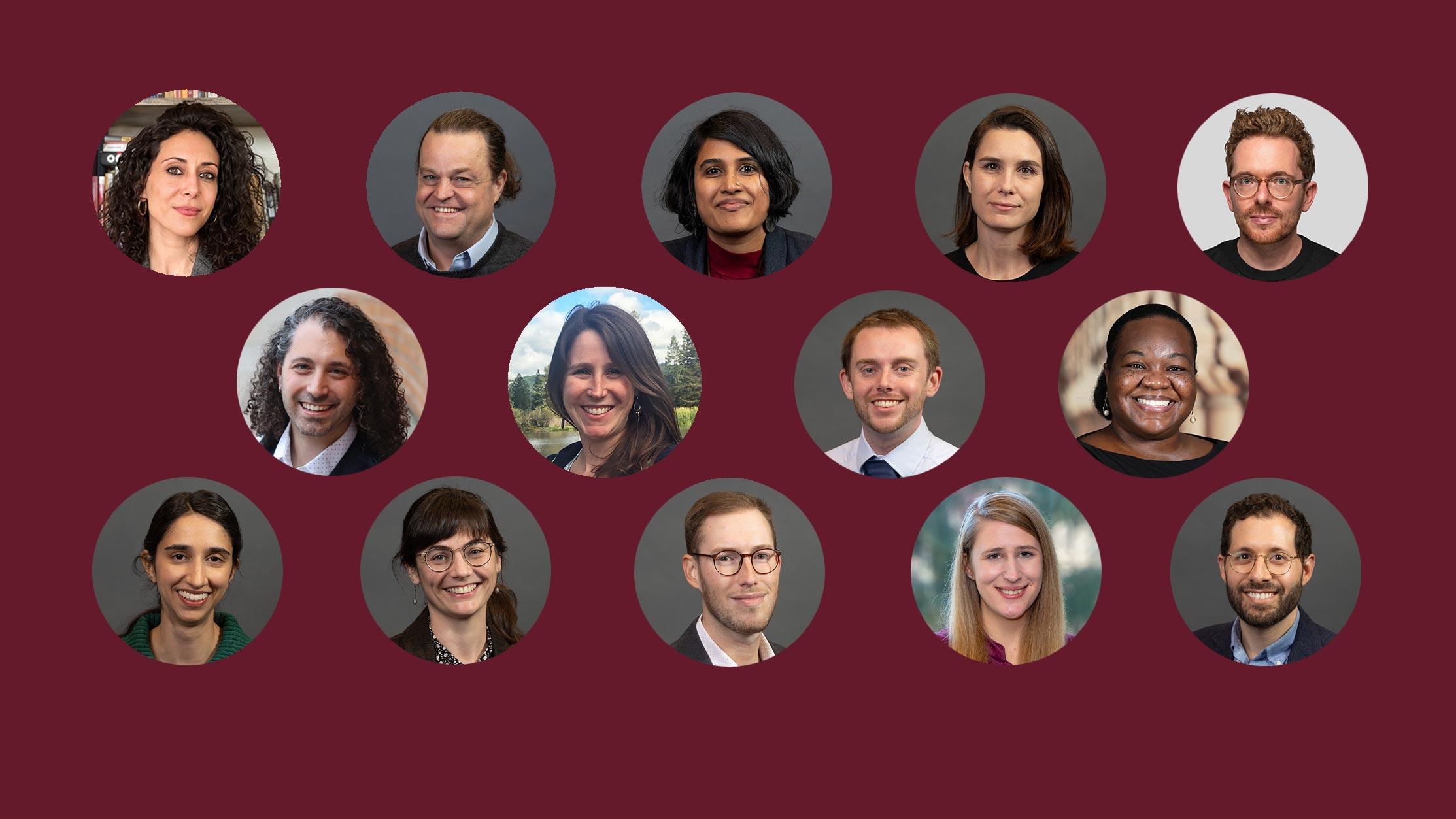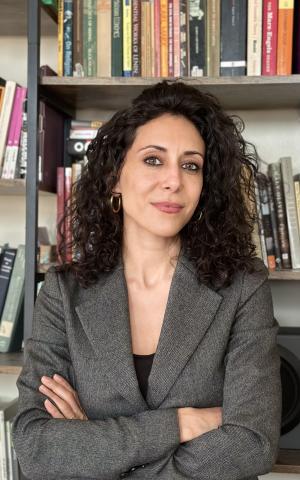China Sajadian

Bridging migration studies, agrarian studies, and economic anthropology, China Sajadian’s research broadly examines links between histories of displacement and contemporary conflicts over land and labor in the Middle East. Her current book project, Debt and Refuge, is based on nearly two years of ethnographic fieldwork with Syrian and Lebanese agriculturalists at the Lebanese-Syrian border. In contrast to the conventional idea of refugee exile as one linked to an originary event of traumatic uprooting by war or disaster, Debt and Refuge argues that Syrian farmworkers’ displacement is part of a much longer history of how debt configures agrarian labor mobility: a multi-generational and ongoing predicament rooted in uneven agrarian development, crises of household provisioning, and gendered labor obligations on both sides of the border. By examining the distinctly agrarian conditions of Syrian farmworkers’ displacement from a feminist perspective, her research challenges the distinction between “involuntary” refugees and “voluntary” labor migrants, as well as the idea of a refugee crisis itself.
Sajadian is a 2025 recipient of the American Council of Learned Societies Fellowship and a Visiting Research Fellowship at the Leibniz-Zentrum Moderner Orient in Berlin, Germany. Before coming to Vassar, she was the Eveillard Postdoctoral Fellow at Smith College. Her research has been supported by the Mellon/American Council of Learned Societies Dissertation Completion Fellowship, the National Science Foundation, the Wenner-Gren Foundation, the Max Weber Foundation, the Center for Place, Culture, and Politics, and the Mellon Committee on Globalization and Social Change. Her writing has been awarded prizes by the Association for Feminist Anthropology, the American Ethnological Society, the Society for Economic Anthropology, the Syrian Studies Association, and the Moise A. Khayrallah Center.
At Vassar, Sajadian teaches courses about migration and displacement, revolution and war, activism, agrarian studies, economic anthropology, anthropological theory, labor, gender, and the Middle East. She is a member of the steering committees for Africana Studies, Migration and Displacement Studies, and International Studies. Alongside her scholarly work, she is also deeply committed to promoting social justice through the arts and has served on the board of the Friends of the Freedom Theatre in Jenin Refugee Camp since 2016.
Research and Academic Interests
- Economic anthropology
- Critical agrarian studies
- Feminism and women’s studies
- Middle Eastern studies
- Migration and refugee studies
Departments and Programs
Selected Publications
Book manuscript
Debt and Refuge: Syrian Farmworkers and the Politics of Displacement in Lebanon
Articles
2025. “The Hidden Abodes of Agricultural Production: Notes from the Lebanese-Syrian Border.” Dialectical Anthropology: 1–9.
2025. “On Inheritances and Contradictions: Agrarian Questions in Post-Al-Asad Syria and Lebanon.” Allegra Lab.
2024. “Reproductive Binds: The Gendered Economy of Debt in a Syrian Refugee Farmworker Camp.” Special Issue on Feminist Political Economy and Rural Transformations in the Global South. Journal of Agrarian Change.
2023. “The Drowned and the Displaced: Afterlives of Agrarian Developmentalism Across the Lebanese-Syrian Border” Mashriq & Mahjar: Journal of Middle East and North African Migration Studies 10 (1): 9-43. (Awarded the Alixa Naff Migration Studies Prize)
2022. “Rethinking Climate Refugees and the Syrian Refugee Crisis: An Agrarian Perspective of Displacement.” Arab Studies Journal 30 (2): 74-81.
2020. “The Agrarian Question in Lebanon Today: A View from the Bekaa Valley” Jadaliyya, August 19.
2020. “Critical Agrarian Studies.” In International Encyclopedia of Human Geography (Second Edition), ed. Audrey Kobayashi, 17–23. Oxford: Elsevier.
Arabic translations of her work
2023. “ʿeyādat al-tafkīr fī al-lajūʾ almunākhī ʿala ḍaūʾ azmat al-lajūʾ al-sūrī: munẓūr zirāʾī lil-nuzūḥ.” American University of Beirut op-ed series, July 17. Translated by Viviane Akiki.
2020. “al-suʼāl al-zirāʻīy fī lubnān: mashhad min mukhayyam fī sahl al-Biqāʻ.” Al-Khandak. Translated by Yara Hateet.

